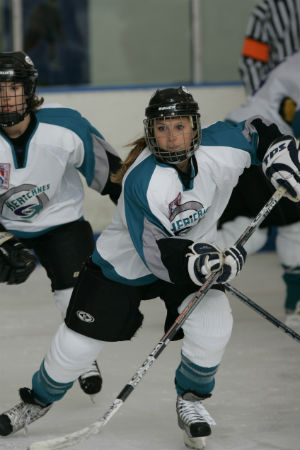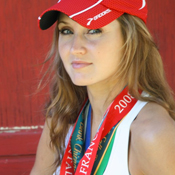The Thing About Sacrifice
 Looking back, many find that the things that pulled them off track for their goals were not as "critical" as they seemed at the time. (Greg McMillan)
Looking back, many find that the things that pulled them off track for their goals were not as "critical" as they seemed at the time. (Greg McMillan)
The idea that training requires sacrifice is not new. Coupled with “hard work,” sacrifice forms half of the one-two combo permeating post-race social media posts.
It took a lot of hard work and sacrifice, but I finally did it!
Five months of hard work and sacrifice… 26.2 miles of glory!
Hard Work + Sacrifice = a new PR, baby!
Actors thank the Academy. Runners thank hard work and sacrifice.
I’m not exactly sure what I thought all that sacrifice looked like, but until this week, I considered myself pretty good at it. Something of a savant, you might say. I know that training for a marathon is a zero-sum contest, especially as the mileage escalates. If you want to run well, stay healthy, and feel strong even deep in the training abyss, you have to trim the fat out of your schedule.
And I’ve always been pretty decent at fat trimming—at least I thought. I don’t stay out partying until the wee hours of the morning. I don’t drink. I go to bed early. I wake up early. On weekends, even. But as time goes on, I’ve grown lax in my definition of sacrifice. I’ve even let the idea of sacrifice bleed into the definition of hard work, so that my workouts themselves are becoming a sort of sacrificial undertaking.
I’m sacrificing ease and comfort to do something that is difficult and uncomfortable, I tell myself. I’m sacrificing the fun for the unfun.
Perhaps it’s a matter of semantics, but suffering and sacrifice are not the same thing. You suffer while you’re running. You sacrifice while you’re not.
I’m a mileage junkie. I love piling miles upon miles. For the past several months, I’ve talked about hitting some new high mileage totals this summer for no other reason than I want to. My body has always handled quantity better than quality. I can run the long and slow. It’s the fast stuff that kills me. “Wouldn’t it be fun,” I said, “to see if I can run my first 100-mile week?”
It doesn’t matter that I just may be the slowest person ever to run a 100-mile week or that my pace doesn’t necessitate that many miles (as several people have already made clear to me). It’s a personal challenge. One that I think my body is ready to tackle. And, as it turns out, one that is going to require an uncomfortable level of sacrifice.
Hockey, of all things. That was my reality check. After a two-year hiatus, I decided it was time I returned to the ice. I’ve missed hockey. And when an opportunity to play on a Sunday night summer league popped up, I pounced. I wrote the check. I signed the release. And only after I saw my name on the finalized roster did I realize my conundrum.
When does one squeeze in a hockey game during a 100-mile week?
Aside from the obvious, “Sunday night!” the answer is never. Never is when you squeeze in a game of ice hockey into a 100-mile week.
And the problem isn’t just the weeks that top 100. What about the 80- and 90-mile weeks leading up to them? Does time commitment mean anything to you? I thought. What about recovery? And we haven’t even talked about potential injury!
I had grown so accustomed to easy sacrifice that I forgot that sometimes running demands sacrifices that sting. Staying out late, drinking, partying—I never did those things anyway. Even as a kid, I was the first to close my eyes at sleepovers. And, honestly, I was never a big fan of sleepovers. The other kids could have their shenanigans. I liked my bed. I liked my routine. Running is a good fit for me—not because I’m good at sacrifice, but because I’m naturally lame.
Hockey was the first sacrifice in a long time that stung. The second? Coffee.
Please, for the love of Juan Valdez, say it ain’t so.
For the past couple of years (yes, years), I’ve dealt with some pretty bad stomach issues. I’ve researched treatments, changed my diet, and consumed all sorts of healing foods and supplements. And while I’ve seen some improvement, I just can’t quite get there.
But on Sunday night, as I headed into the second hour of lying sprawled out on the bathroom floor, I knew it was time to get serious. I had no choice but to make the one sacrifice that until that moment I had obstinately refused to make.
I had to stop drinking coffee.
Obvious, right? I know. But it was a stronghold. And I just couldn’t give it up until I realized I would never, ever get better until I made that sacrifice.
Of course, I can’t play hockey and hit 100 miles in a week. At least, not without getting injured. So I’ve made my decision. I want the mileage—and I accept the sacrifices that go along with it. I figure I can play half the games before I bail on the season, sometime in early July. (Don’t worry. My team is overstocked. I think they’re thrilled to get rid of someone.)
Goals require sacrifice. Big goals require big sacrifice. And sometimes those sacrifices sting.
I just wish I would have remembered that before I wrote the check. Or spent Sunday night in the bathroom.

Amy L. Marxkors is the author of The Lola Papers: Marathons, Misadventures, and How I Became a Serious Runner and Powered By Hope: The Teri Griege Story. Click here to receive Amy's weekly article via email.
Connect With Us
see the latest from Fleet Feet St. Louis